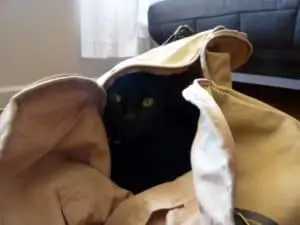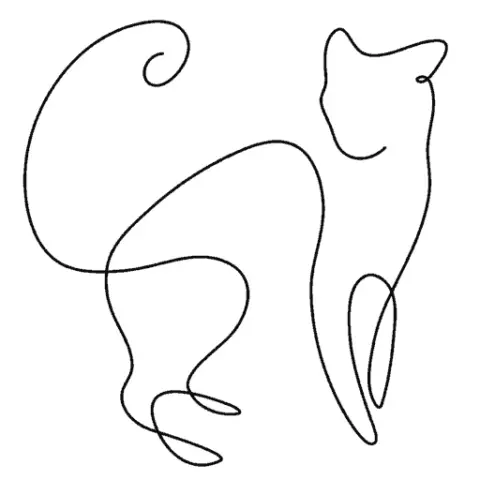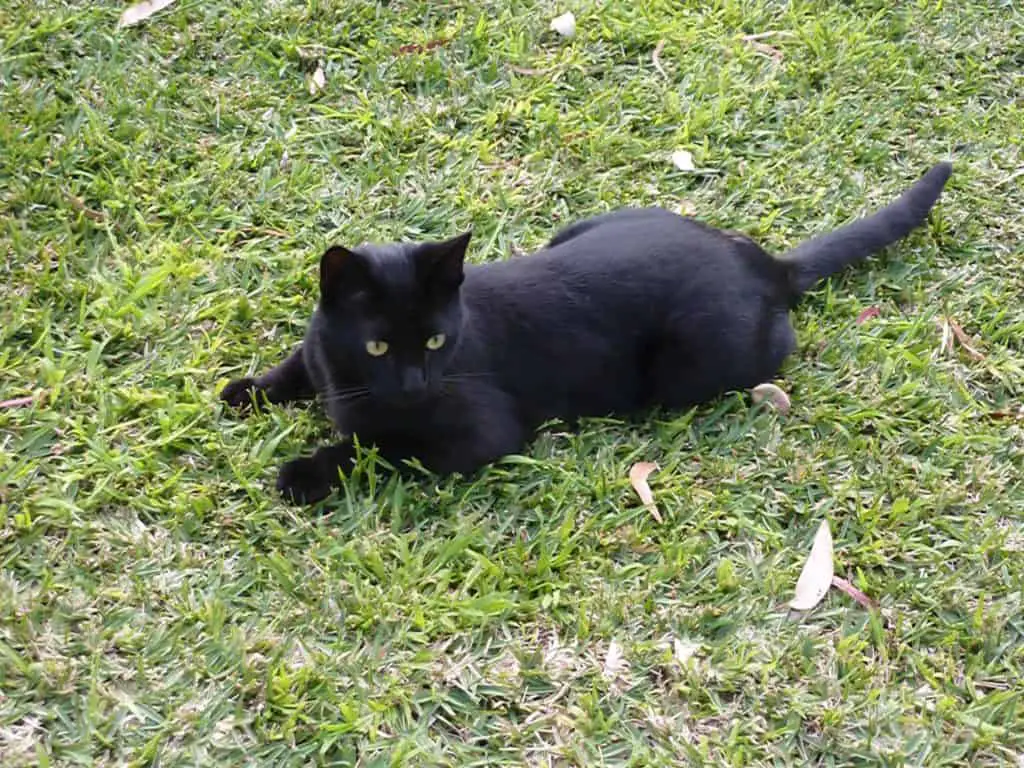How to stop my cat killing animals? Ever asked yourself this question? Cats like to hunt, but they can be stopped. There is little genetic difference between a domesticated and a wild cat. This leads scientists to believe that the house cat is only domestic when it wants to be. This information may answer many questions cat owners have about their kitty but is especially relevant when one considers the efficiency and prowess cats have when it comes to hunting. They can be very prolific and efficient.
Click this link for a fascinating Smithsonian article on domesticated cats.
Many scientists refer to cats as semi-domesticated. The first known cats kept as pets date back about 9000 years. It is no surprise that cats were likely domesticated to use their hunting skills to protect food, such as grains. Think about this for a moment. Cats became pets because of their hunting skills, and boom, we spend all our time as owners (I know cats don’t really have owners) trying to break them of their hunting prowess.
Fun Fact
A cat’s nose contains about 200 million nerve cells, which means her sense of smell is fourteen times more sensitive than your own.
It’s not that easy. Not all cats are created equal – who knew! Some of our beloved cats have a much stronger hunting instinct despite having ample supplies of food from humans.
How to stop my cat killing animals? We’ve been there.
We had a cat who was an avid hunter. We have had to ask the question, how to stop my cat killing animals? The cat came into our lives as a rescue after having lived on the street for several months. There are many challenges with having a (previously abused) street-smart cat, one being the inability to turn him into an indoor-only cat, the other was to quell his amazing hunting skills. Georgie (our cat) was a killing machine.
As a former street cat, we could not fault Georgie, but this behavior is not something we condone, so we set out to find a solution. The strategies we implemented, in the beginning, had some effect, but he was still hunting. These strategies included keeping him indoors before dawn and after dusk, adding three bells to his collar, taking bird feeders away from our yard, and trying to reduce his urge by introducing occasional raw food. We used kangaroo meat and raw chicken.
It helped cut down on his hunting, but it did not eliminate it. It was only after our regular vet attended a conference where the hide and seek game used in zoos was presented that she discussed it as a potential solution for us. Could this be true? We had nothing to lose.
The result? Georgie went from 2-3 kills a week to about two a year. Astonishing, isn’t it?

Hide and seek sounds impressive, right?
It sounds astonishing because it is. We don’t have to look far as the experts (in zoos) have been doing this for years. It must be pointed out that zoos (to our knowledge) do not use live animals as prey. They use treats and sometimes toys. We visited one zoo that hid apples every morning for its elephant population.
How to stop my cat killing animals? – try this method
Choose your prey
To stop your cat hunting, you need the right prey. Your prey comes in the form of the perfect treat. The kind of treat that makes your cat sit up and take notice the moment your hand hits the package. For this game, the treat must be individual pieces. It is vital to get the treat just right as it will become the target. Your cat must love it, or the game is destined to fail.
Start simple
Training is required as your cat can’t be expected to understand what you are doing at first. A helpful tip is to ensure kitty is hungry. You might want to play the game before breakfast or dinner or the time of day when your cat is at her hungriest. This will help her instincts to kick into action and make for a much more willing participant.
Set your cat up to succeed
Cat’s don’t like to fail. If it is too hard or she doesn’t understand, she is likely to refuse to participate. Start easy and work your way up to an actual (scavenger-like) hunt. You will know when it becomes easy because she will have the treats eaten before you have finished hiding them. That is your first indication that the concept is well understood, and it’s time to ramp up the game.
Be your cat’s cheerleader
Cats love attention. In the beginning, you will want to watch and give encouraging words every time they find a treat. If kitty gets frustrated or distracted, you can help them find a treat.
Hide the food wisely
Start indoors in a single room. Think of easy places such as on a chair or even on the floor in the corner of the room. Once the game is understood, slowly increase the difficulty. You can introduce additional rooms, then concepts such as inside a box or on a bookshelf.
If your cat has access to the outdoors, this will be your next progression. An indoor/outdoor game can take you minutes to hide the treats, but take kitty all day to hunt them down.
As the difficulty of the game progresses, you can add places such as planter boxes and other nooks and crannies.
Consistency is critical, so on days you can’t play hide and seek (we all have them), offer a puzzle feeder or cat puzzle toy as an alternative. You get the idea.
The bottom line is this, hide and seek works for any cat that is food-oriented enough to love treats, is a hunter, and loves games. This does not mean kitty will never hunt again (wouldn’t that be nice), but if it cuts the hunting down, it’s a success.
How to stop your cat killing animals? Take it slow.
Cut your cat some slack
Cats are natural predators, so punishing your cat for hunting does not work. Cats have retained their hunting skills and are less (then other animals) dependent on humans as their source of food. If you were to release a cat into the wild, it would be unlikely to die of starvation.
You might still recieve presents
Should your cat brings you its prey, and the victim is still alive, assess for injuries. If injured, take the animal to the vet. Otherwise, contain the cat while you release the animal to an area where it will be safe.
The best part? Cats are genetically wired to hunt. We can use it to our advantage. Faking a hunt and making a game out of it is a great solution.
One more thing…
By leaving a dead mouse at your feet, your cat is exercising its natural role as a mother/father and teacher. You represent her surrogate family, and it is her way of showing her love. And, she knows that left to your own devices you would never have been able to catch that mouse on your own. So, cut her some slack by acknowledging her highly evolved survival instinct by turning the hunt into a game that both of you will enjoy. Mice, birds, and other wildlife of the world will thank you.

